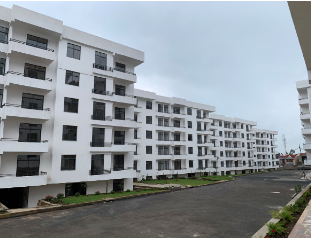In a major economic move, the National Bank of Ethiopia has shifted from a decades-long, fixed exchange rate to a market-based foreign exchange rate. This reform aims to restore market balance and stability, ushering in a new era for Ethiopia’s financial environment. While the change has sparked debate among economists and business leaders, with public discussions on social media, the real estate sector has not received much attention. The sector may face higher costs due to currency volatility, increasing construction material prices and development costs.This article will explore these impacts and the broad implications for Ethiopia’s real estate market.
Real estate in Ethiopia is increasingly attractive for investors seeking to shield their assets from inflation. Recent years have seen significant changes due to economic reforms, a rising middle class, and urbanization. The government has introduced various policies to boost foreign investment, streamline property transactions, and simplify registration, aiming to enhance investor confidence and reduce bureaucratic obstacles. Despite these efforts, challenges remain, such as the 10% investment for banks in real estate and the 14% credit cap imposed by the NBE last year, which has unintendedly impacted bank lending. Additionally, the recent shift to a market-based foreign exchange rate and the near 100% devaluation of the birr present both new challenges and opportunities for the sector.
“The shift to a market-based forex rate presents both pros and cons,” said an anonymous real estate developer. “On the positive side, we can now issue our own Letters of Credit (LC) and purchase foreign currency at the official rate and retain, compared to the previous reliance on exporters’ LCs. However, a significant downside is the rapid increase in local market prices; for instance, steel prices have surged from 130 ETB to 180 ETB in just a week.” He added that this new foex policy exacerbates the impact of the existing 14% credit cap, potentially affecting demand in the real estate sector.



No Comment Found.